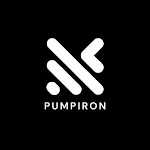Diet Plan for Muscle Gain Pakistan
A diet plan for muscle gain is one of the most effective ways to build muscles. Read on to learn more about it!
Eat More Protein.
Proteins are essential nutrients that help in building muscles. They also provide energy to the body. However, not all proteins are equal. You must consume high-quality protein sources such as meat, fish, eggs, dairy products, beans, nuts, seeds, etc.
Protein is the building block of muscle mass. When we eat protein, our body breaks down the food into amino acids, which then become the building blocks of muscles. Eating enough protein helps build lean muscle mass, which is vital for many reasons:
- It helps us burn fat faster.
- It helps us recover from exercise.
- It helps us maintain a healthy weight.
- It helps us feel full longer.
- It helps us sleep better at night.
- It helps us have stronger bones.
- It helps us live longer.
- It helps us fight off disease.
- It helps us heal faster after injury.
- It allows us to perform better in sports.
- It helps us look younger.
2. Eat more vegetables
Vegetables are packed with vitamins and minerals that help keep our bodies strong and healthy. They are also low in calories and high in fiber, making them great for keeping us feeling fuller longer. Vegetables also provide antioxidants that protect our cells from damage caused by free radicals. Free radicals are unstable molecules that cause cellular damage and contribute to aging. Antioxidants neutralize these free radicals and prevent their harmful effects.
3. Eat more whole foods
Whole foods are foods that haven't been processed or refined. Whole foods are often referred to as natural foods. They're foods that haven't been altered chemically or physically. These foods contain vitamins, minerals, and phytonutrients (plant-based compounds). Many people think they need to eat less meat to lose weight, but research shows that eating more plant-based foods may help you lose weight.
4. Eat more beans
Beans are a good source of protein, fiber, iron, folate, and zinc. Beans are also a good source of resistant starch, a type of dietary fiber indigestible by humans but provide short-term benefits to the gut microbiome. Resistant starch feeds the probiotic bacteria in the gut, helping to improve digestion and boost immunity.
5. Eat more nuts
Nuts are a great snack option because they're high in protein and low in calories. Nuts are also loaded with heart-healthy fats and fiber.
6. Eat more eggs
Eggs are a great source of protein and choline, a B vitamin that promotes liver health and normal brain functioning. Eggs are also a good source of lutein and zeaxanthin, two carotenoids that promote eye health. Egg yolks are also a great source of vitamin D, which is necessary for bone health.
7. Eat more seafood
Seafood is an excellent source of protein, especially if you choose wild-caught fish over farm raised. Wild-caught fish contains higher levels of omega-3 fatty acids than farm-raised fish. Omega-3 fatty acids are essential for brain and nervous system function. Seafood is also a great source of selenium, which is necessary for thyroid function. Selenium is also vital for skin health.
Protein
Protein is a macronutrient that is essential for muscle growth. It helps build lean muscle mass and aids in recovery after exercise. To get enough protein in your diet, try eating foods high in protein at each meal. Add chicken breast, fish, eggs, beans, nuts, seeds, tofu, or yogurt to your meals.
2. Carbs
Carbohydrates are the primary fuel source for muscles. Eating carbs turn into glucose, which is then stored in the liver and muscles. Eating carbs before working out increases endurance and performance. Try eating whole grains, fruits, vegetables, and legumes.
3. Fat
Fat is an essential part of any diet. It provides energy and helps keep you full. Fat also helps maintain skin and hair health. Try eating avocado, coconut oil, olive oil, nuts, seeds, and fatty cuts of meat.
BOOST MUSCLE MASS:
Creatine Monohydrate
Creatine monohydrate is a naturally occurring substance that occurs in meat and fish. It is a popular supplement among athletes who want to build muscle mass. Creatine helps increase the amount of protein synthesized by the body, which increases the size of muscles.
2. L-Arginine
L-arginine is a natural amino acid that is commonly used in supplements. It is often combined with caffeine to help improve athletic performance. L-arginine works by increasing nitric oxide levels in the bloodstream. Nitric oxide is a chemical messenger that causes blood vessels to relax, resulting in increased blood flow. Increased blood flow means more oxygen and nutrients are delivered to working muscles.
3. Glucosamine Sulfate
Glucosamine sulfate is a dietary supplement that is derived from shellfish. It is often taken together with chondroitin sulfate to treat joint pain and inflammation. Glucosamine sulfate helps maintain cartilage in joints and bones.
4. Caffeine Anhydrous
Caffeine anhydrous is a type of caffeine that is not bound to water molecules. It is often added to energy drinks to give them their jittery feeling. Caffeine anhydrous stimulates the central nervous system and increases alertness.
5. Beta-Alanine
Beta-alanine is a nonessential amino acid that is produced by the body. Sports nutrition products often use it to enhance endurance and reduce fatigue. Beta-alanine is converted into carnosine, a powerful antioxidant that reduces free radicals in the body. Free radicals cause damage to cells and DNA.
6. Milk Thistle Extract
Milk thistle extract is a standardized extract of the seeds of the milk thistle plant. It contains silymarin, a flavonoid that is known for its liver-protective qualities. It is often used to treat liver disease and protect the liver from toxins.
7. Vitamin D3
Vitamin D3 is a fat-soluble vitamin necessary for bone formation and maintenance. It is also involved in regulating immune function and maintaining regular cellular activity.








0 Comments